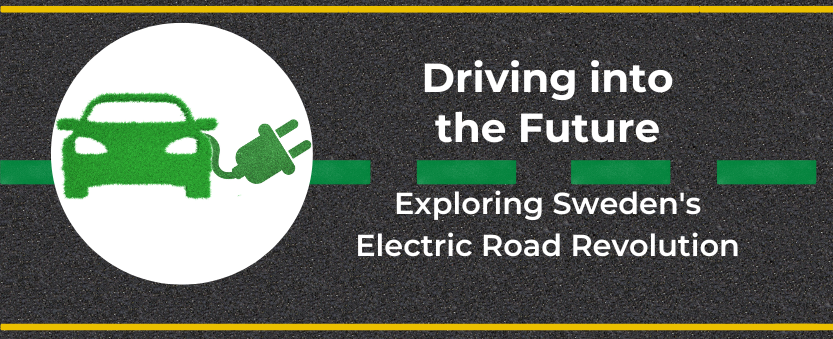Sweden is at the forefront of sustainable transportation initiatives, and one remarkable development in this realm is the introduction of Electric Vehicle (EV) roads.
These innovative highways are designed to power EVs while they drive, eliminating the need to search charging stations and wait for the EV cars to get charged.
In this blog, let us know the potential impact of Electric Vehicle (EV) roads in Sweden.
- Electrified Highways: A Game-Changing Concept: Sweden's electrified highways integrate advanced charging technologies directly into the road infrastructure.
These smart roads utilise various technologies, such as inductive or conductive charging, to transfer energy without wires or through physical connections to EVs as they travel in the roadway.
This forward-thinking approach eliminates the need for traditional charging stations, enabling EVs to draw power seamlessly as they travel along these specially designed roadways.
- Dynamic Inductive Charging Technology: At the heart of Sweden's electrified highways lies vibrant inductive charging technology.
The roads are equipped with an innovative wireless charging system that transfers energy to EVs through an electromagnetic field.
The roads are equipped with an innovative wireless charging system that transfers energy to EVs through an electromagnetic field.
As electric vehicles with compatible charging receivers travel over the electrified sections of the road, their batteries are recharged wirelessly, ensuring a constant source of power.
- Advantages of Electrified Highways: By charging EVs while moving, drivers experience extended range capabilities, minimising range anxiety and enabling longer journeys without the need for frequent charging stops.
Electrified highways have the potential to be implemented on a large scale, integrating charging capabilities directly into existing road networks.
This scalable approach optimises infrastructure utilisation and reduces the need for additional charging stations, making EV adoption more feasible and cost-effective.
- Pilot Projects and Future Expansion: Sweden has taken a proactive approach to testing and implementing electrified highways.
Several pilot projects, including the eRoadArlanda and Smartroad Gotland initiatives, have paved the way for further research and development. These projects aim to evaluate the performance, durability, and feasibility of electrified highways, providing valuable insights for future expansion and adoption.
After various pilot projects, experimenting with temporary versions of the road, and other solutions, the road is set to be constructed by 2025. However, the engineers involved are still figuring out which technology would best suit the job.
- Implications for Sustainable Mobility: One of the most significant implications of EVs for sustainable mobility is the substantial reduction in greenhouse gas emissions.
EVs produce zero tailpipe emissions, leading to cleaner air and a decrease in air pollution.
Electric motors convert a higher percentage of stored energy into motion, whereas internal combustion engines waste a significant amount of energy as heat.
This efficiency translates into less energy consumption, reducing our dependence on fossil fuels and promoting resource conservation.
As renewable energy technologies continue to advance, the electricity used to power EVs can be generated from a mix of sources such as solar, wind, hydro, and geothermal.
- Overcoming Challenges: While electrified highways present innovative solutions, challenges such as compatibility, standardisation, and cost must be addressed.
Ensuring that charging technologies are compatible across different EV models, establishing industry standards, and managing the cost-effectiveness of implementation are vital considerations for successful integration.
Improving battery technology is crucial for enhancing the range and overall performance of EVs.
Continued research and development efforts should focus on advancing battery energy density, reducing charging time, and extending battery life.
Electric Vehicles (EVs) are ushering in a new era of sustainable transportation, offering a multitude of benefits for individuals, communities, and the environment. With advancements in technology, expanding charging infrastructure, and increasing consumer awareness, EVs are becoming a viable and attractive alternative to conventional vehicles.
